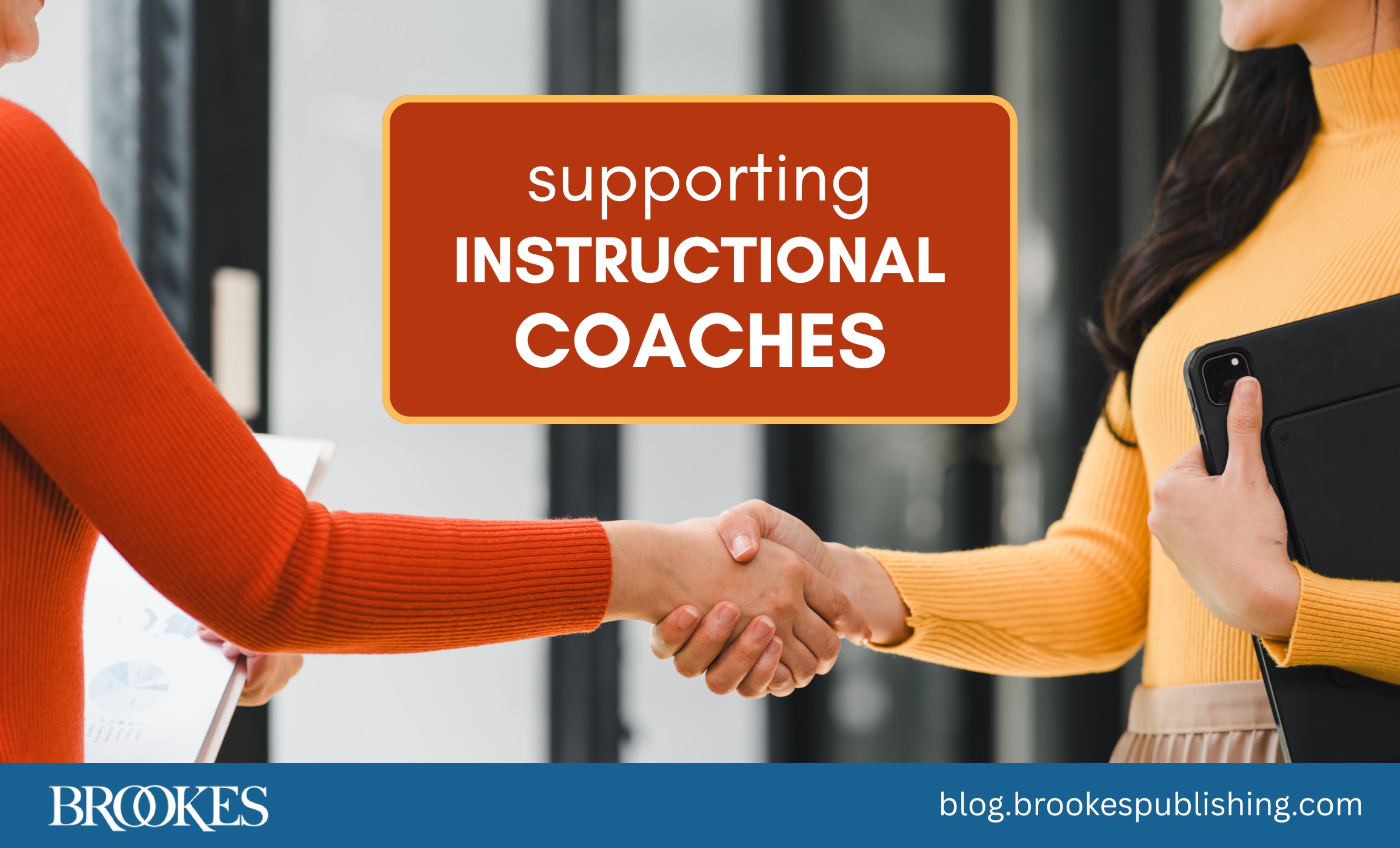Executive Function Help: 15 Tips on Organization, Study Skills, & Time Management
March 21, 2017
When you hear the words executive function, what types of skills come to mind first? If you’re like many teachers, you might immediately think of a child’s ability to organize, study efficiently, and manage time well. Executive function encompasses more than that, but these skills tend to spring to mind first for a reason: because they’re critical underlying abilities with a significant and lasting impact on children’s school success.
Today’s post gives you fifteen strategies for helping students with executive function challenges conquer homework, tests, and long-term projects. Adapted from the practical guidebook Executive Function in the Classroom by Christopher Kaufman, these tips will help you and your students’ parents provide effective support at school and at home–and give kids the skills they need to succeed in the classroom and beyond.
Organization
Dedicate one homework space
For kids with executive function issues, having too many home-based workspaces destroys organization and productivity and increases the likelihood of misplaced supplies and assignments. So at the start of the school year, encourage parents to establish one (and only one!) homework space for their child, whether it’s the bedroom desk, the kitchen table, or another quiet area. Ask parents to help their child design a clutter-free materials management system for the space. All academic supplies should always be in their designated places in the workspace—for example, it’s not okay for pens and erasers to be strewn across the desk after homework is done. If parents can strictly enforce a good organizational system, effective materials management will slowly become a habit for their child.
Establish consistent schedules and routines
Random, inconsistent homework schedules are tough for kids with executive function challenges to follow and can often lead to avoidance, fatigue, and distraction. Setting a regular schedule is one of the best ways to help students get things done consistently and efficiently. Encourage parents to establish regularly scheduled homework periods for their child. On days when they don’t have homework, the child can use that time for reading, journal writing, or another quiet activity.
Use checklists and inspections
 “I forgot my spelling list at school.” Parents of kids with executive function challenges are probably no stranger to stress-inducing statements like these. You can help by developing a daily school-to-home checklist of the materials that need to make it into the backpack. Early in the year, you or another classroom staff member should supervise as the child completes the checklist, and then support can be faded (though spot-checks should still be done a few times a week). On the home front, parents can review the checklist with their child right before and after school to make sure all the needed materials are in the child’s backpack and ready to go.
“I forgot my spelling list at school.” Parents of kids with executive function challenges are probably no stranger to stress-inducing statements like these. You can help by developing a daily school-to-home checklist of the materials that need to make it into the backpack. Early in the year, you or another classroom staff member should supervise as the child completes the checklist, and then support can be faded (though spot-checks should still be done a few times a week). On the home front, parents can review the checklist with their child right before and after school to make sure all the needed materials are in the child’s backpack and ready to go.
Less is more
Students with executive function challenges might need specific homework modifications due to the high levels of cognitive and emotional fatigue they tend to experience. When designing modifications, start by looking at the instructional intent of the assignment you give to the larger class. Look for ways to reduce the production demands of an assignment—narrative writing, organization of numerous details into new ideas—while still maintaining the core objective of the lesson. Assignments with heavy output requirements can actually do more harm than good for students with executive function weaknesses. Following the less is more rule of thumb can help students learn more effectively, and can also cut back on negative outcomes like incomplete work and increased family stress.
Use highly structured and signed assignment books
 Assignment books, agenda books, daily homework planners—whatever you call them, these planning tools are familiar to most teachers and parents. But like any other planning tool, they only work if they’re used consistently. To help kids with executive function challenges:
Assignment books, agenda books, daily homework planners—whatever you call them, these planning tools are familiar to most teachers and parents. But like any other planning tool, they only work if they’re used consistently. To help kids with executive function challenges:
- Keep the assignment books as simple as possible to encourage student use. (Bear in mind that many students with executive function weaknesses are averse to intensive writing tasks.)
- Supervise their use daily. Initial the book every day at school and ask a parent to initial it at home.
- Give students explicit instructions on what to write down in the assignment book (or at least check them before the school day ends to ensure that the student has recorded assignments accurately).
Supervise organization at school and home
Because students with executive function challenges may struggle to follow even the best organizational systems, parents and teachers should provide “surrogate frontal lobe support” in the form of direct, individualized supervision. Before a homework session begins, a parent can help by supervising the child’s retrieval and return of needed materials to their designated places. At school, you can provide the student with not only an organizational system but also the guidance and reminders they need to make the system work.
Study Skills
Explicitly model notetaking
 Good study skills begin with good notetaking in class. Author Christopher Kaufman describes one great example of effective notetaking instruction in this book:
Good study skills begin with good notetaking in class. Author Christopher Kaufman describes one great example of effective notetaking instruction in this book:
“Probably the best notetaking instruction I have ever witnessed for students with executive function weaknesses was in a ninth-grade Western Civilization class. Because of the rather heterogeneous nature of the academic and executive skill sets among the students in the class, the teacher determined early in the year that the only way she could ensure that all students took effective notes on the content she was teaching was to model the notes she wanted them to take on an overhead projector (as part of her teaching).
As I sat in the back of her classroom, observing a student with Asperger syndrome, I saw this highly effective instructional strategy in action and how it benefited even the students whose executive needs tended to make them rather poor notetakers in other classes. After presenting some specific bit of information and then opening it up to class discussion, the teacher would summarize the essential learning points on the transparencies on the projector while telling the group the reasons for the phrases/keywords chosen for inclusion in the notes. She also paused the discussion every several minutes, directed the students to copy what was on the projector into their notebooks, and then wandered the room to ensure that everyone was doing as instructed.”
This example demonstrates the value of explicitly teaching notetaking. This teacher not only achieved the goal of her lesson, she also taught her whole class how to summarize and organize key information on paper.
Use notetaking templates
 Notetaking templates are an excellent way to help students organize important information in a format that will help them study and retain it for tests and assignments. Set up your template as a two-column question-and-answer format that the student can fill in, or try a three-column format that also prompts students to write down a strategy (such as a mnemonic device) they can use to recall the information. Graphic organizers can also be an effective notetaking tool. For students with executive function challenges, try organizers with a straightforward sequential flow rather than complex ones that branch out in many directions.
Notetaking templates are an excellent way to help students organize important information in a format that will help them study and retain it for tests and assignments. Set up your template as a two-column question-and-answer format that the student can fill in, or try a three-column format that also prompts students to write down a strategy (such as a mnemonic device) they can use to recall the information. Graphic organizers can also be an effective notetaking tool. For students with executive function challenges, try organizers with a straightforward sequential flow rather than complex ones that branch out in many directions.
Show students exactly what to study and how to study it
To study effectively and perform well on tests, students need to know how to distinguish the really important information from less important information. This can be a challenge for kids with executive function issues, which can make studying for a test seem impossibly difficult. You can help level the playing field by giving these students explicit instruction about which information and materials they should focus on when they study. Then you and/or the special educator can provide clear strategies for the how of studying–for example, help students construct study aids like flashcards, mind maps, and note consolidation systems.
Establish study schedules and routines
Students with executive function issues are more likely to underestimate the time they need to prepare for a test (see the Time Management section below). Support their studying by helping them schedule and stick to study time. For regularly scheduled quizzes and examinations, both teachers and parents can create weekly studying schedules and write them into assignment books several weeks in advance. Students should be supported to stick to the schedules like clockwork. Don’t let them skip a scheduled weekly study period, even if they say they already know the material. Consistent study routines are key to helping students build stronger executive function skills.
Time Management
Limit or carefully structure topic choices
Giving your students choices is a good thing, but when kids with executive function challenges are faced with endless possibilities, they can easily get stuck on a decision. To ease topic selection for a project, limit the choices available to students. Give them three historical figures to choose from for their biography project, or carefully support them during the selection process so they don’t get bogged down.
Turn mountains into a series of molehills
 For students with executive function challenges, a multi-step project might seem like a towering mountain that’s impossible to climb. No wonder they get overwhelmed! You can help by structuring a larger assignment as a series of “molehills,” small elements that are each do-able on their own. As students keep checking off small tasks they complete, they’ll build a sense of project mastery and optimism, and the mountain won’t seem so insurmountable after all.
For students with executive function challenges, a multi-step project might seem like a towering mountain that’s impossible to climb. No wonder they get overwhelmed! You can help by structuring a larger assignment as a series of “molehills,” small elements that are each do-able on their own. As students keep checking off small tasks they complete, they’ll build a sense of project mastery and optimism, and the mountain won’t seem so insurmountable after all.
Be specific about project steps and deadlines
Often, students with executive function challenges have difficulty sensing the passing of time and ballparking how long a project will take. Vague reminders about deadlines don’t do much to help them. Instead, try giving very specific instructions linked to specific steps and deadlines. Kaufman provides this teacher script as an example:
“Michael, the notecard step of the Africa project should take you about a week. That’s it. To make sure you’re making good progress, though, let’s get started on it today, you and me, during independent work time at the end of the period. Then I want you to bring me five more completed note cards on your topic this Wednesday and five more the following Monday. Come on, let’s get that written down in your assignment book. I’ll also send your mom a quick email to let her know the plan.”
Provide lots of individualized project coaching
 It might be tempting to think that students with executive function challenges just need to “step it up” and “learn to do things on their own.” But while it’s important to foster their independence, you can’t just insist they manage a long-term project with many task demands while receiving the same level of support as their peers. To succeed, they’ll need individualized coaching and regular check-ins from you and their parents along the way.
It might be tempting to think that students with executive function challenges just need to “step it up” and “learn to do things on their own.” But while it’s important to foster their independence, you can’t just insist they manage a long-term project with many task demands while receiving the same level of support as their peers. To succeed, they’ll need individualized coaching and regular check-ins from you and their parents along the way.
Complete a structured project planning form
Try creating a project planning form to ensure that every student in a class is making good progress toward completing long-term assignments. The form should include topic selection, materials gathering, and all the other small “molehill” steps of the assignment process. Have a column for due dates and another column the students can check off when they show each completed step to you. This is a great way for students to demonstrate their progress in a concrete way, and an easy way for you to stay on top of a student’s individual coaching needs as they go from step to step.
***
What’s the best, most practical way to develop the executive function skills of all your students? Build executive function teaching and practice right into your curriculum, from day one. If you implement teaching methods that target the needs of students with executive function challenges, you’ll end up improving the organization, planning, and time management skills of every student in your classroom.
For more practical guidance on helping students develop skills in these and other key executive function areas—including impulse control, working memory, planning skills, and self-regulation—pick up the book Executive Function in the Classroom.





Write a Comment
Your email address will not be published. Required fields are marked *
comments
asd says
Nice Post
article.galore.bar says
Cómo evitar el hambre
Pastillas que te hacen perder peso. Es miembro de la Academia
de Nutrición y Cómo evitar el hambre de Arkansas. Engañar a
tu Cómo evitar el hambre para que te sientas satisfecho.
Podríamos estar aburridos, sedientos, molestos, estresados o Cómo evitar el hambre con ganas de comer un aperitivo sabroso.
La dieta Optavia es un tipo de dieta restrictiva que puede perjudicar la salud.
Programa una comida o una pequeña merienda aproximadamente 30 minutos antes de
la hora a la que normalmente sientes hambre.
Se recomienda un consumo diario de 46 gramos de proteína en el caso de las mujeres y 56 gramos en el caso de los hombres.
Cómo evitar el hambre hambre todo el tiempo puede ser frustrante
y dificultar que mantengas tu peso o te ciñas a un plan Cómo evitar el hambre
dieta. Claudia Carberry es una dietista registrada especializada en trasplantes
de riñón y asesora a pacientes para perder peso en la
Universidad de Arkansas para Ciencias Médicas. Es miembro de la Academia de
Nutrición y Dietética de Arkansas. Claudia recibió su maestría en nutrición en la Universidad de Tennessee Knoxville en Haz una autoexploración.
5 situaciones que pueden provocar ataques de hambre
Post a Comment